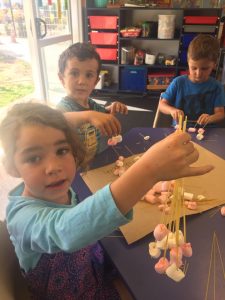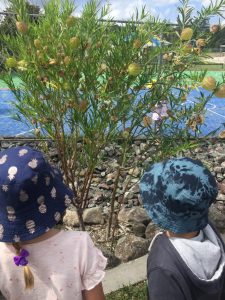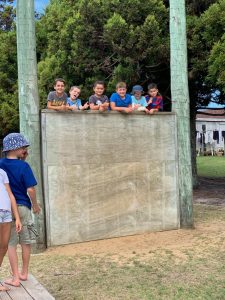Transition to School
We aim to have a positive transition between preschool and our new entrant class. We do this by building strong relationships with preschool centres, families, children and our staff.
Initial contact
With our Principal means families get an introduction and overview of what our school is about and get to see the school in action.
The transition from early childhood education to school is supported when the school:
Fosters a child’s relationships with teachers and other children and affirms their identity
- Builds on the learning experiences that the child brings with them;
Considers the child’s whole experience of school
Is welcoming of family and whānau
This new stage in children’s learning builds upon and makes connections with early childhood learning and experiences. (MOE, 2007, p 41)
Our new entrant teacher contacts preschool centres and organises a visit to meet staff and interact with the child in their environment, when enrolment is confirmed. This gives the child an opportunity to share their portfolio , build relationships and share their day-care experiences.
Visits
Normally 3 visits – usually on Mondays three weeks prior to start date and this is organised to suit all concerned. This gives them a relaxed introduction to the class and environment. Families are welcome to stay for the visits. Anna (new entrant teacher) spends a lot of time with the families on those days.
- 9.00am – 11.00am for the first visit
9.00am – 1.20pm for the second visit
9.00am – 2.00pm for the third visit
Paperwork
We give out a Room 1 Information pack with all the details of how room 1 functions plus enrolment forms. Website links to pack forms
Our new entrant classroom
We run a structured programme that includes Reading, Writing, Handwriting, Maths, Physical Education and the Arts with Te Reo embedded into the daily programme. While we run a formal learning programme, we also have a strong component of play running alongside it. This is deliberate and allows for a gentle transition from pre-school into primary schooling.
By allowing children space and time to play they will show you what they know, what they are capable of, and what they want to learn about. Through play, they explore and express their ideas, interests, and passions — but you need to listen to these carefully to know what to pick up on. (Powerful play/continuity and inquiry for children starting school. Keryn Davis , April 2004, Core education article)
Lev Vygotsky said that ‘In play a child always behaves beyond his average age, above his daily behaviour; in play it is as though he were a head taller than himself. As in the focus of a magnifying glass, play contains all developmental tendencies in a condensed form and is itself a major source of development.’ (Vygotsky, 1978, p 102).
A strong component of our class is building resilience and forming positive relationships with others under our school wide Positive Behaviour for Learning (PB4L) programme. A priority in this programme is building resiliency and making them feel welcome and safe.
Today, resilience has a much broader meaning. For researchers and professionals working with kids, it’s not just about “bouncing back.” It’s about “bouncing forward.” Resilience doesn’t just mean getting back to normal after facing a difficult situation. It means learning from the process in order to become stronger and better at tackling the next challenge. Donna Volpitta,EdD
Research shows that a positive classroom climate leads to better social and academic outcomes for students. When students feel that they are cared for and that they matter, they are far more likely to be engaged in their learning. Taking the time to make the classroom environment one that is pleasant to be in, physically and emotionally, is time well spent. “Professor Rubie-Davies, Becoming a High Expectation Teacher, 2014, p 182.
We have expectations of students taking part in the structured programme while completing work to the best of their abilities. However each child is seen as an individual and they gradually transition into the formal programme at their pace. Much of the teaching is done on a 1-1 basis. We also encourage dramatic play.
Providing time for uninterrupted creative, dramatic play ensures that our learners are operating at the highest level of creative thinking. (Longworth Education, Providing Time for Dramatic Play May 28, 2016 Linda Cheer).
This leads into drama activities, dramatic learning and Mantle of the Expert inquiry learning further up in the school. It also allows for situations where children encounter conflict and we guide them into ways to deal with this.
We have a strong belief that if our children are happy and resilient with a positive growth mindset, they will do well at school.



